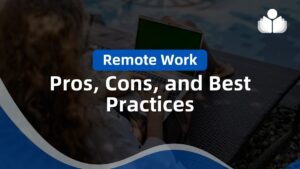Critical Ingredients for Building and Maintaining Trust
Various Perspectives on Building Trust
Also, consider
Related Library Topics
Learn More in the Library’s Blogs Related to Building Trust
In addition to the articles on this current page, see the following blogs which
have posts related to Building Trust. Scan down the blog’s page to see various
posts. Also, see the section “Recent Blog Posts” in the sidebar of the blog or
click on “next” near the bottom of a post in the blog.
Library’s
Coaching Blog
Library’s
Crisis Management Blog
Library’s
Leadership Blog
Library’s Supervision Blog
Critical Ingredients for Building and Maintaining
Trust
© Copyright Carter McNamara,
MBA, PhD
There are numerous ingredients that must be present for there to be strong
and sustained trust in interpersonal relationships and in the workplace, for example, do
what you say you are going to do, always be clear and consistent in your assignments
and say what you mean. Different people together could probably generate one
long list. However, here are five of the most important ingredients.
Authenticity
Authenticity has become a very popular concept lately, especially as we hear
— and try to follow — a myriad of suggestions about how we “should be”
in our relationships and our work. Too many of us try to be something that we
aren’t and so we inadvertently become inauthentic. People can sense when someone
is not being true to themselves or others. The concept of authenticity has become
so idealized and romanticized that it appears that a truly authentic person
would almost be that perfect person with no faults at all. Instead, perhaps
authenticity is best described as being honest with ourselves and others. See
Authenticity.
Empathy
Empathy is the ability to relate to, and understand, others and sometimes to
even feel what they feel — to “walk in their shoes.” Empathy is not
the same as sympathy, which is feeling pity or sorrow for another in discomfort.
You can empathize with someone without feeling sympathy for them. People trust
other people when they understand each other. Skills in empathy are the basis
for accurate and ongoing understanding between people. See Empathy.
Listening
It’s not enough to be real and have the ability to fully relate to others.
You also have to hear them, to really grasp and understand what others are trying
to convey to you. Without truly listening to others, you will not have their
trust. As much as we value skills in listening, too many of us don’t have those
skills — we listen more to ourselves than to others. There are some basic guidelines
that, if followed, can make a huge positive impact on your listening skills.
See Listening.
Respectful Feedback
Ongoing, successful communication is the foundation for building trust. That
communication should go beyond sharing information about the weather. It should
include our opinions and suggestions about the opinions and suggestions of others.
That feedback can be shared in very respectful ways that sustain the respect
and trust between participants. Similar to skills in listening, several guidelines,
if followed, can greatly enhance skills in sharing feedback. See Feedback.
Ethical
Ethical behavior is always striving to do what’s morally right for yourself
and others, particularly when times are tough and we’re challenged to cut corners
to get things done quickly and cheaply. When people damage the trust between
them, it’s usually because one or more of them have done something hurtful —
they’ve done something that they would not want done to themselves. Many would
argue that a cornerstone of being ethical is the golden rule — to do unto others
as you would have them do unto you. See Ethics.
Various Perspectives on Building Trust
How To Build Trust
Keeping an Open Line of Communication with Your Employees
Trust Building
How
to Build Trust
How
To build Trust at Work
Bridging We-They Gaps
Bringing Values to Life
For the Category of Interpersonal Skills:
To round out your knowledge of this Library topic, you may want to review some related topics, available from the link below. Each of the related topics includes free, online resources.
Also, scan the Recommended Books listed below. They have been selected for their relevance and highly practical nature.
 Sections of this topic
Sections of this topic
















